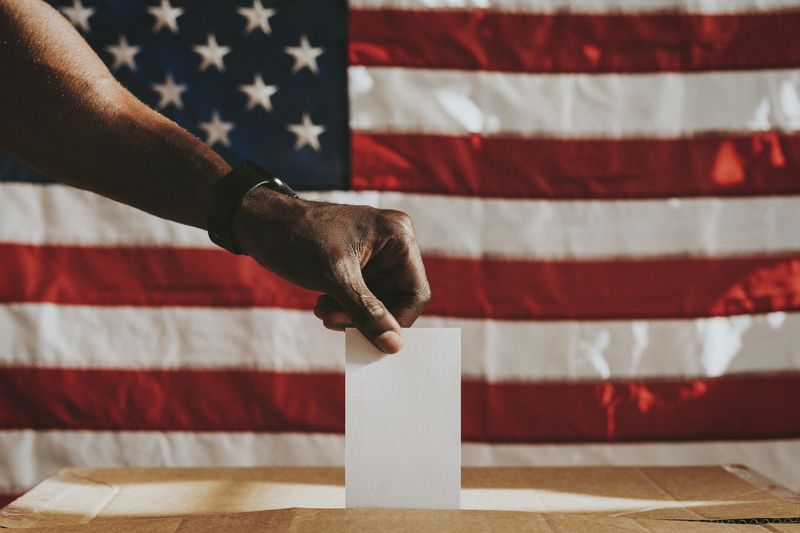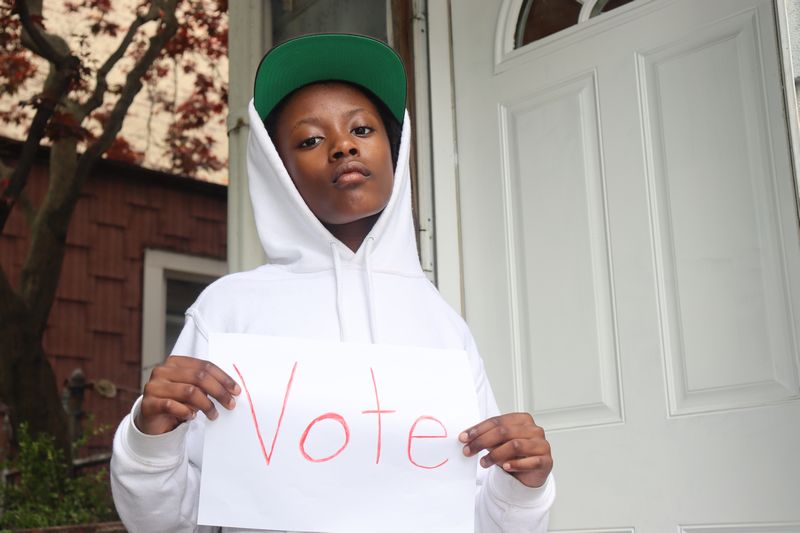Everything You Need to Know About Felony Voting Rights
By Melisha Daniels - June 19, 2020Today the nation celebrates Juneteenth. A day that signifies the freedom of African slaves in America some two and a half years after the Emancipation Proclamation was signed. While many Americans are learning the origin of Juneteenth for the first time this week, citizens of the United States with felony convictions still struggle with accessing rights that come with being free. That being said, I can’t think of a better day to inform the millions of people affected by felony convictions of their right to vote.
An estimated 19,000,000 Americans are impacted by felony convictions preventing them from participating in America's democratic election. To put this number in context, the 2016 presidential election saw the current president Donald Trump defeat the democratic nominee Hillary Clinton by approximately 221,000 popular votes.
In addition to African-Americans and people of color being disproportionately affected by the United States criminal justice system, complicated voting laws regarding the right to vote after a felony conviction leave many unsure if they have the right to vote and what they need to do to exercise this right now that they have a felony conviction on their record.
JustasIam Career Services has taken the liberty (pun intended) to compile this list of voting rights for people that have come in contact with the criminal justice system.

Voting While Incarcerated
There are 2 states in America that understand the importance of voting rights and do not disenfranchise their citizens from voting due to felony convictions.
- Maine
- Vermont
Individuals in these 2 states never lose the right to vote. These states encourage participation in the democratic process that shapes this country by allowing all of their citizens the right to vote without regard to criminal background. Voting rights remain intact even during incarceration.
Voting Rights Suspended Only While Incarcerated
Fifteen states suspend voting rights for people convicted of felonies only during incarceration.
- District of Columbia
- Hawaii
- Illinois
- Indiana
- Maryland
- Massachusetts
- Michigan
- Montana
- New Hampshire
- North Dakota
- Ohio
- Oregon
- Utah
Voting rights are suspended only during incarceration. Immediately after being released from jail or prison the right to vote, as a citizen of the United States is restored.
Voting Rights Automatically Restored After Completion of Sentence (Including Probation or Parole)
These 23 states suspend voting rights for people with felony convictions until the entire sentence, including probation or parole has been completed.
- California
- Colorado
- Connecticut
- Florida
- Georgia
- Idaho
- Kansas
- Louisiana
- Mississippi
- Minnesota
- Missouri
- New Jersey
- New Mexico
- New York
- North Carolina
- Oklahoma
- South Carolina
- South Dakota
- Washington
- West Virginia
- Alaska
- Arkansas
After the sentence, including any term of probation or parole has been completed voting rights are automatically restored.
Voting Rights Reinstated After Post-Sentence Completion Waiting Period
These 5 states require a person previously convicted of a felony offense to complete a waiting period after the completion of their sentence before voting rights can be restored.
- Nevada
- Nebraska
- Virginia
- Wisconsin
- Wyoming
After completion of the post-sentence waiting period, voting rights can either be restored automatically or by completing some form of restoration application process.
States That Require Application for Restoration of Voting Rights
Albeit the many known issues with disparities in the criminal justice system and its disproportionate effect on Black families, some states further disenfranchise their citizens from access to voting rights by requiring post-conviction probationary periods and restoration processes for individuals with prior felony convictions to regain their right to vote.
Alabama
- Voting rights are revoked for people convicted of 46 crimes of moral turpitude. A person can make an application to reinstate those rights after they are discharged.
- Voting rights for those convicted of murder, kidnapping, rape, sexual abuse or torture, etc are revoked and not eligible for reinstating unless a pardon has been granted by the Governor of the state.
- Voting rights for people that have been convicted of all other felonies not mentioned above remain and those individuals are allowed to vote while incarcerated, on probation or parole.
Arizona
Voting rights for people convicted of felonies are suspended and the process for restoration depends on the number of convictions.
- 1st time Offenders - rights are automatically restored upon release from probation or parole and payment of restitution.
- 2 or more offenses - rights can be restored by judge who discharges the term of probation/parole or by making application to the court.
Delaware
- Individuals convicted of felonies that include murder, bribery or sexual offenses are permanently disenfranchised from voting.
- People convicted of all other felony convictions voting rights are restored after the expiration of their sentence or when pardoned.
Iowa (Updated 10/10/2020)
- The right to vote is automatically restored after completion of sentence, including any periods of probation, parole and any other special confinement sentences.
- People with homocide or other related offenses may have their voting rights restored by making an application to the governor.
Kentucky
- Voting rights for non-violent offenders automatically restored upon completion of sentence including probation.
- Voting rights for individuals convicted of violent offenses, treason, bribery, etc must apply for restoration of rights after completion of sentence.
Mississippi
- Voting rights are cancelled when convicted of offenses including murder, rape, bribery, theft, arson, obtaining money or goods under false pretense, perjury, forgery, embezzlement or bigamy. Voting rights can be restored if a pardon is received.
- Voting rights are automatically restored for people who have not been convicted of the offenses listed above.
Nevada
- Voting rights are automatically restored after completion of sentence for 1st time offenders.
- People with 2 or more convictions can apply to have their voting rights restored.
Tennessee
- Voting rights are cancelled by conviction of a felony.
- Rights are permanently cancelled for people convicted of the following felonies in the specific time period::
After July 1, 1986
- Voter fraud
- Treason
- First-degree murder
- Aggravated rape
After July 1, 1996, to June 30, 2006
- Voter fraud
- Treason
- Any degree of murder or rape
After July 1, 2006
- Voter fraud
- Treason
- Any degree of murder or rape
- Certain felonies involving bribery, misconduct involving public officials and employees, or interference with government operations
- Sexual offenses or violent sexual offenses that are felonies where the victim was a minor
- People convicted of crimes between January 15, 1973, and May 17, 1981 rights are automatically restored and they do not have to apply for restoration.
- All others with previous convictions can make an application to restore voting rights after completion of sentence or pardon by the Governor.
- Proof of restoration of rights is required to register to vote.
Wisconsin
- Voting rights are cancelled by conviction of a felony.
- Individuals can make an application to restore voting rights after completion of sentence or pardon by the Governor.
- Jailer to provide notice in writing of restoration of rights upon release from jail or prison.
Wyoming
- People convicted of treason or felony bribery are disqualified from voting.
- Nonviolent 1st time offenders - voting rights are automatically restored when sentence is completed.
- All other individuals with felony convictions must receive a pardon to be eligible to vote.
This list is for informational purposes and is not all inclusive of the voting rights, processes and procedures for voting with felony convictions. If you have questions regarding your right to vote with a felony conviction, please contact your state election board or your state department of probation and parole to determine your rights and exercise your right to vote.



